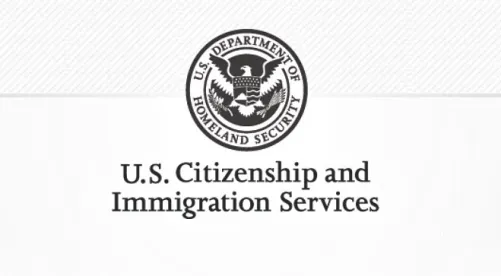As employers work through issues related to the COVID-19 pandemic, it is important to evaluate the immigration considerations for employees on various work visas. Some of the most common alternatives to H-1B visas include foreign nationals who hold E-1, E-2, L-1, O-1, TN, and F-1 visas. While these types of work visas do not have the same legal requirements relating to prevailing wages and changes in work locations as H-1B visas, there are important considerations for these employees as well.
Temporary Remote Work
Generally, E-1, E-2, L-1, O-1, TN, and F-1 visas are not location specific, so there is some flexibility with regard to the physical work location for these employees. Employers are only required to file a new petition for these employees when there is a material change to the job. If the employees are still in the same position and performing the same job duties from home rather than at a worksite, an amended petition is not likely required.
Employees in L-1 and F-1 status who are working pursuant to optional practical training (OPT) or STEM OPT are subject to site visits by U.S. Citizenship and Immigration Services (USCIS). USCIS conducts such visits to ensure compliance with the underlying STEM OPT training plan for students and the petition including payment of the required prevailing wage for H-1B workers. USCIS has not made any official announcements about whether the agency will proceed with site visits given that so many businesses are closed as a result of COVID-19. For employees in L-1 status, USCIS will likely be forgiving of any remote work arrangements based on the number of policies the agency has relaxed in an effort to minimize the impact of COVID-19. For employees in F-1 status, Immigration and Customs Enforcement (ICE) is responsible for the F-1 student program. ICE recently announced its intent to relax its standards and encouraged teleworking as an option. Thus, it is unlikely that employers will experience any issues with temporary remote work for F-1 students participating in OPT.
Furloughs
Generally, for E-1, E-2, L-1, O-1, and TN employees to remain in valid status they must be employed and working for the employer that sponsored them. USCIS has not issued any guidance about how a furlough would impact these visa statuses. However, these employees would not be working or receiving wages, so one might speculate that they would not be in valid status.
Some employers are leveraging a 60-day grace period that allows employees to maintain status despite a “cessation” of employment. Under this argument, if the employees return to work within the 60-day grace period, they will have maintained status and no new petitions or departure and reentry into the United States to reset their stay would likely be required. Keep in mind neither the 60-day rule nor the proposed rulemaking notice explicitly mention furloughs, so there could be some risk in this interpretation. If employers choose this approach, it is important to note that the 60-day grace period can be used only once.
Furloughs will also have an impact on F-1 students who are working pursuant to OPT. For students on OPT, they have a maximum of 90 days of unemployment. Students on a STEM OPT extension they are allowed a total of 150 days of unemployment, which includes any days accrued while on OPT. F-1 students should monitor these dates carefully and work with their designated student officer (DSO) if they are concerned about maintenance of valid F-1 student status.
Reduced Hours
Generally, most employees in E-1, E-2, L-1, O-1, TN, and F-1 status work full-time, although part-time work in O-1, TN, and F-1 status is also common. A reduction in hours is significant if the petition or application filed on behalf of the student-employee indicated that he or she would be working as a full-time employee. If the employee is still full-time (35 hours or more per week), no further action should be required since there has not been a material change. However, if a reduction in hours changes the employee’s status to part-time, this will likely be considered a material change and require an amended petition or notification to the student’s DSO.
Salary Reductions
Employees in E-1, E-2, L-1, O-1, TN, and F-1 status are not subject to a prevailing wage requirement and a salary reduction generally does not constitute a material change that triggers a need to file an amendment. This means that companies will likely have greater flexibility from an immigration perspective when reducing salaries without any impact to the validity of the employees’ work authorized status.
Travel Restrictions
Many companies have employees who apply for E-1, E-2, L-1, and TN visas at U.S. embassies and consulates outside the United States or at a port of entry (if eligible). Due to the numerous travel restrictions for various countries and the closure of U.S. embassies and consulates, companies may need to file extension petitions or applications with USCIS while the employees remain in the country. Under the current administration, petitions filed with USCIS tend to be closely scrutinized by the agency, resulting in higher rates of requests for evidence and, in some instances, denials. Given these increased risks, employers may want to consider their options carefully to determine how best to approach USCIS case filings.





 />i
/>i
